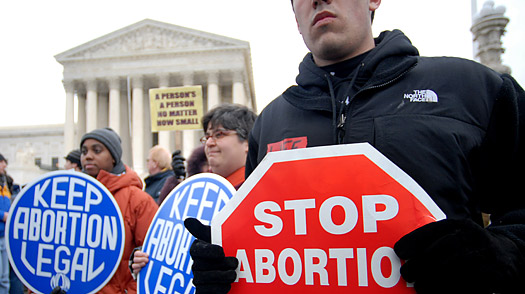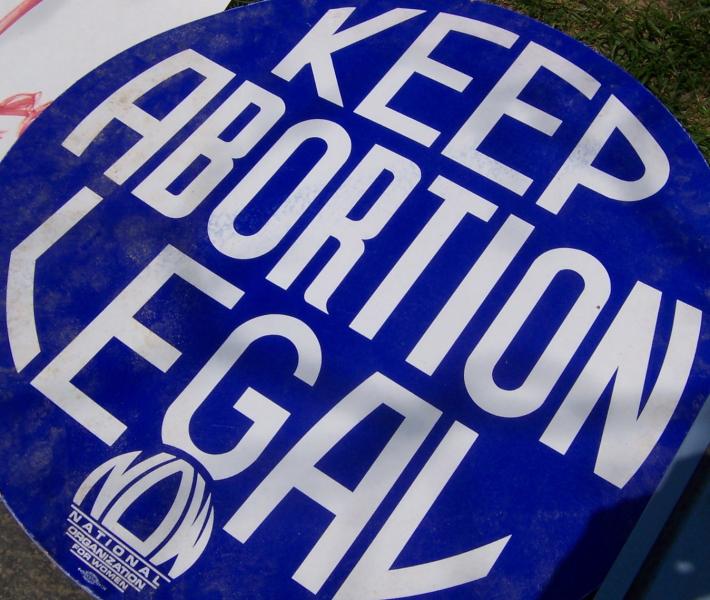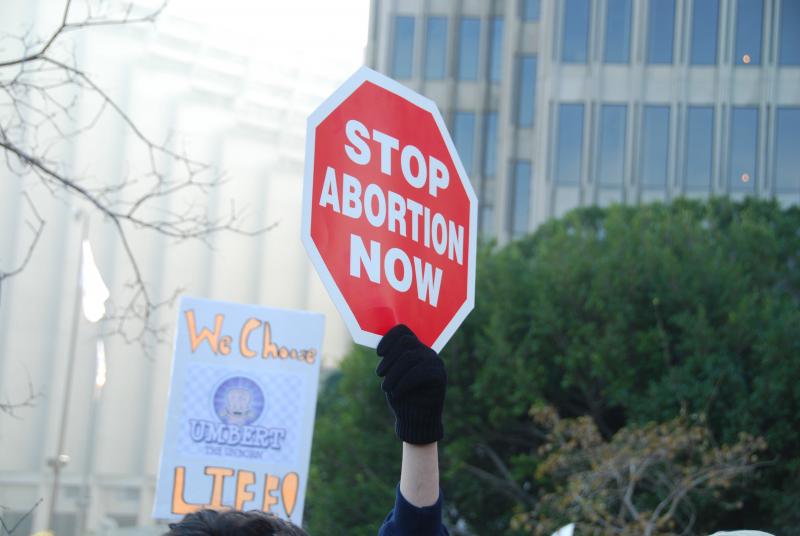The Abortion Debate: When Does Life Begin?

This past week, a large part of the nation championed Texas Senator Wendy Davis. Ms. Davis stood up in a legislative session and filibustered for 11 hours in an attempt to kill a bill that would ban abortions taking place after 20 weeks and severely reduce the number of clinics able to perform the procedure in the state of Texas. Ms. Davis knew that had a vote taken place, there was a strong likelihood the bill would become law. While originally successful in her attempt to prevent a vote and thus the passing of the bill, Republican Governor Rick Perry called a special second session of the legislature in order to allow a vote on said bill.
Specifically, the restrictive abortion bill would reduce the number of clinics able to perform abortions from 42 to five. Those attempting to pass the bill claim this reduction is because those 37 clinics do not perform safe abortions. Unfortunately, in a state as large as Texas, this leaves just five clinics, and none in the western part of the state. If the real problem with these clinics is that they do not perform safe abortions, the legislature should clearly put its money where its mouth is and either train the individuals at those clinics to perform the procedure properly, or simply build a number of new clinics that do meet its standards. Anything short of this, and the Texas legislature is making it dangerously easy to recognize that their claims of safety as motivation are lies and there is simply an objection to the procedure as a whole and a lack of willingness to admit it.
However, my main thoughts here concern restricting abortion after 20 weeks, and when abortion should be restricted in general. At 20 weeks, a baby has undergone incredible development. By the 20-week mark, the baby has fingerprints, the beginnings of teeth buds, their limbs have come into full proportion, they have eyelashes and eyebrows and it is day 14 of being able to determine if you are having a son or daughter. All of this brings us back to our original question: when does life begin?
In 1973, the Supreme Court decided Roe v. Wade and legalized abortion. The language they used in the ruling sowed the seeds for its own destruction. The Supreme Court ruled that the interests of a fetus could not be placed above the interests of the mother until the fetus was “viable” - described as being able to live outside its mother’s womb with assistance if necessary. At the time, the court accepted the medical community’s opinion that viability occurred around 28 weeks. As technology advanced, that number kept - and keeps - coming down. It can be argued that the court saw this coming, as they ruled a viability test must be done starting at 20 weeks, the very number at which Texas is trying to draw the line for abortion. As we move forward and technology continues to improve, viability will continue to creep closer and closer to the start of pregnancy, although at the moment there have been no recorded successful births before the twenty-second week.
While I respect Ms. Davis for exercising her right to filibuster (and actually filibustering, unlike what we see in Washington), I can’t help but strongly object to her disagreement with banning abortions after 20 weeks. Go back and read the description I gave you of a baby’s characteristics at 20 weeks. I can’t tell you if there is scientific proof that life starts at conception; it’s been a while since I took a biology class. What I can tell you is that if you are capable of determining whether to paint the nursery walls pink or blue, if your child has fingerprints and eyelashes she will someday bat at a boy you don’t like, life has begun. I have spent the past week trying to come up with a reason for abortion to be legal after 20 weeks, and I’ve yet to find an answer.
This is a conversation that is very rarely had with any semblance of respect or measured thought. I can’t tell you everything about the topic. However, I can tell you that to deem it solely a women’s rights issue, or even simply a women’s issue, instead of a life issue, is a miscast to rival Russell Crow in "Les Miserables." To say that this issue is only about the mother and has nothing to do with a child is wrong. To say that this issue is only about women, when statistics on population tell us that half the babies aborted are boys, is wrong.

Given the question of when life begins, I find myself drawn to the question of when life ends. In the United States, death (not brain death) is determined by the cessation of a heartbeat, respiration and the circulation of blood. When a person lacks those things, they are determined dead (to say nothing of our ability to bring people back from death). If those are the criteria for determining death, it only makes logical sense to look at the inverse in determining life. It only makes logical sense to say the presence of those things is to life what their absence is to death. When my heart stops, and my blood is no longer circulating, someone will say that I have died; I have stopped living. Does it not make sense, then, to say that when my heart begins to beat and my blood begins to circulate, that I have started living? A baby’s heart first beats at six weeks. At six weeks, a child meets the inverse of the criteria our medical community uses to determine death. By our own definition of what determines if your 80-year-old grandfather is still hanging on, we have concluded that a six-week-old child is alive.
I know the objection you want to present here. The pro-choice camp will say that the child’s heartbeat is assisted. They (or you) will want to say that as that heartbeat is not independent of help from an outside source, we cannot consider the child alive and therefore at six weeks this is still only a women’s rights issue instead of a life issue. It is a strong objection. At first glance, it would appear to cause a problem for my argument. However, there is a flaw in the logic.
The idea that a heart must beat independently to determine life brings us to the conclusion that millions of living, breathing people in this country aren’t alive. It brings us to the conclusion that because Dick Cheney has an implanted pacemaker he is not alive, as his heart could not beat independently without it. It means tens of thousands of people in hospitals on one form of life support or another are not alive. Better yet, the Supreme Court already addressed this objection when they made their decision back in 1973. The ruling of Roe v. Wade contained the term “fetal viability,” as I mentioned earlier. This viability was defined as the stage in which life “may be continued outside the womb by the natural or artificial life-supportive systems.” As the Supreme Court has already determined life may be assisted, i.e. not independent and still be considered viable life, the objection raised here loses ground.
It should also be pointed out that I have ignored the criteria of respiration in determining death and therefore life. Once again, I answer this objection by looking at how we pronounce someone dead; this time, specifically at how we diagnose a miscarriage or stillbirth. A miscarriage is when the baby is lost before 20 weeks, and a stillbirth is when the baby is lost after 20 weeks of pregnancy. The medical community diagnoses a stillbirth by taking “an ultrasound examination (a test that uses sound waves to take a picture of the fetus) [that] can confirm that the fetus has died by showing that the fetus’s heart has stopped beating.” As you’ll notice, there is no mention of respiration along with the diagnoses that the fetus has died. The medical community has made the determination that a fetus is alive simply by having a heartbeat, not by having both heartbeat and respiration. Therefore, once again. the objection is overruled by our already widely accepted medical definitions. That is not even to mention the over-inclusiveness of the objection, which would cause us to eliminate the entire “at viability” pro-choice camp and would lead us to be more surprised by a successful birth than a still birth, as a still birth would simply be status quo for the child’s existence up until that point.
I have read the literature and heard the pro-choice arguments. I have taken the philosophy classes to which this issue is central. I have heard the argument that it isn’t within our rights to make a woman keep a child she didn’t plan for, as it is her body. How it is unfair to force a child to be born into a less-than-ideal home with parents who aren’t in a stable relationship, and how preventing abortion just causes it to happen in less safe ways. I have heard the arguments, but as long as your justifications for abortion are broken condoms, broken homes, and a broken system, they are not, and will not be enough for me to believe we should legislate the national acceptance of purposefully ending a child’s life.
Abortion is not a question of Christians vs. non-Christians; it is not a question of Democrats vs. Republicans and it is not a question of men vs. women. Abortion is a question of life. It is a question of when our children are alive and what we do to protect their lives. I advocate a woman’s right to choose so far as she is not ending another life. I advocate her right to choose to make her partner use a condom, her right to choose to use birth control, and her right to choose to use plan B.
I am not advocating making all abortion illegal. I am not advocating making abortions prompted by pregnancy via rape or incest illegal. I understand that there are instances late in pregnancy of a woman’s life being in danger and action having to be taken. I purposefully don’t use the term “emergency” abortion here. Much like “hero” and “patriot” before that, our understanding of the word “emergency” seems to have decreased the more often we have thrown it around. I also advocate education on the subject. An education far more encompassing than the one I received in high school health classes that was predominantly directed at abstinence. In an era when that message is being lost on almost everyone, we must present sexual education in a different, more diverse way. An education that will better teach teenagers about contraception and other resources. An education that will help decrease the number of young girls who find themselves in a position where they even have this debate; an education that will prevent people from seeing abortion as just another form of birth control. All that being said, even all the education in the world does not change the nature of the abortion debate: it still hinges on the question of when life begins.

Legislating abortion is an issue that could, and does, go back and forth all day and even into the night if you’re Wendy Davis; an issue that inspires greater emotion in this country than almost any other. It is an issue for which people are largely incapable of removing their emotions. We are a nation whose laws are meant to be built not on what you want or what you feel, but on what you can prove; something often lost on those debating abortion. Abortion is an issue whose answer we have made more complicated than it truly is. If we would just use our own medical standards for determining death, and as a result its opposite, we would find that the answer to the question of when life begins has been staring us in the face all along, ever since that sixth week, fluttering those tiny little eyelashes in our direction.



